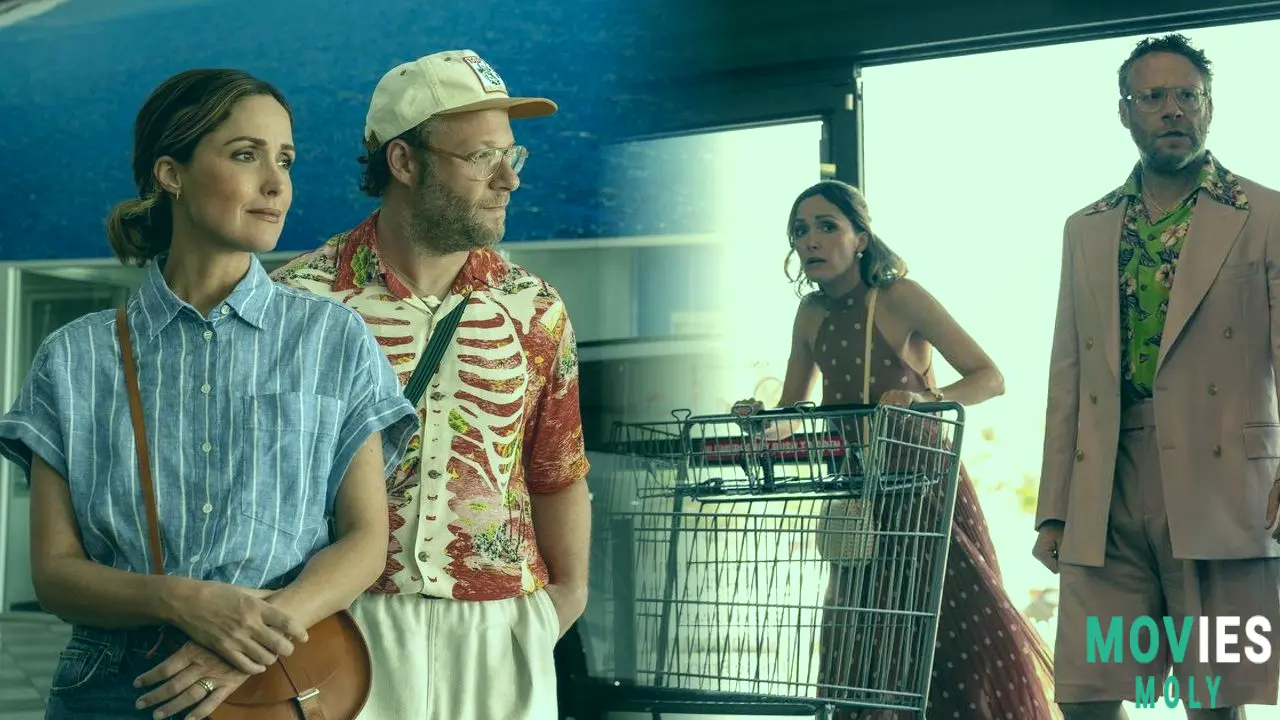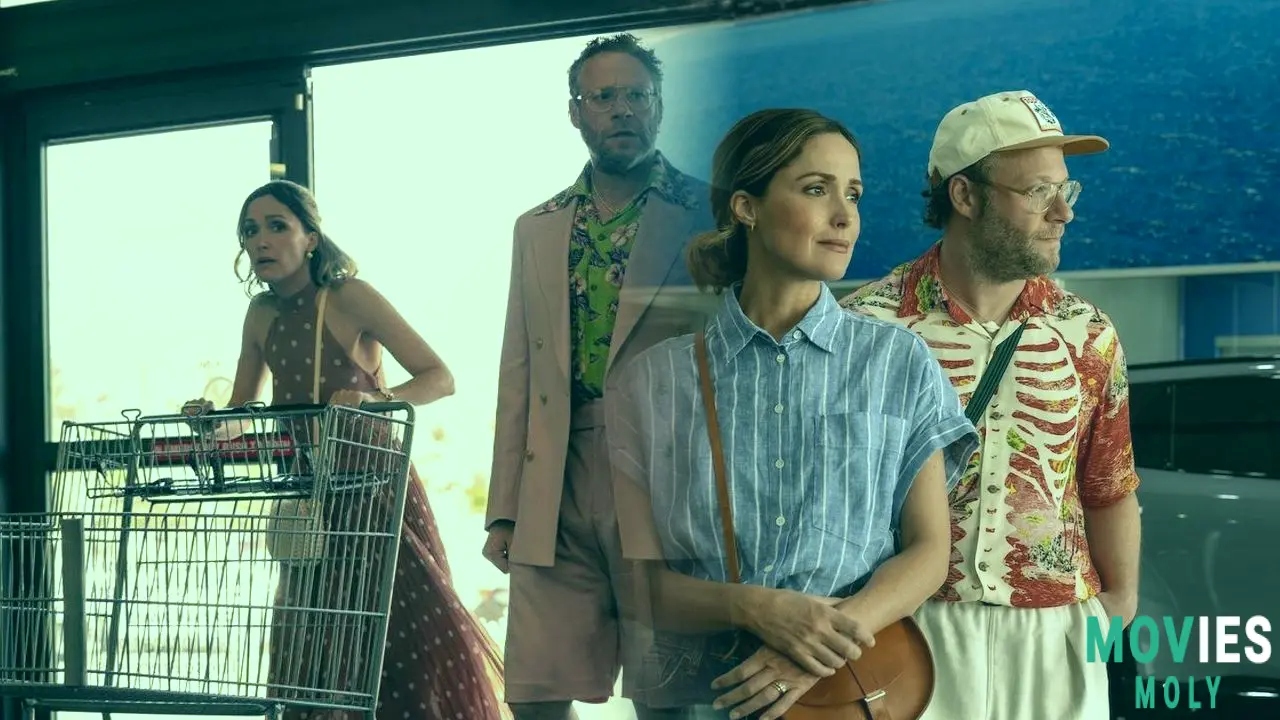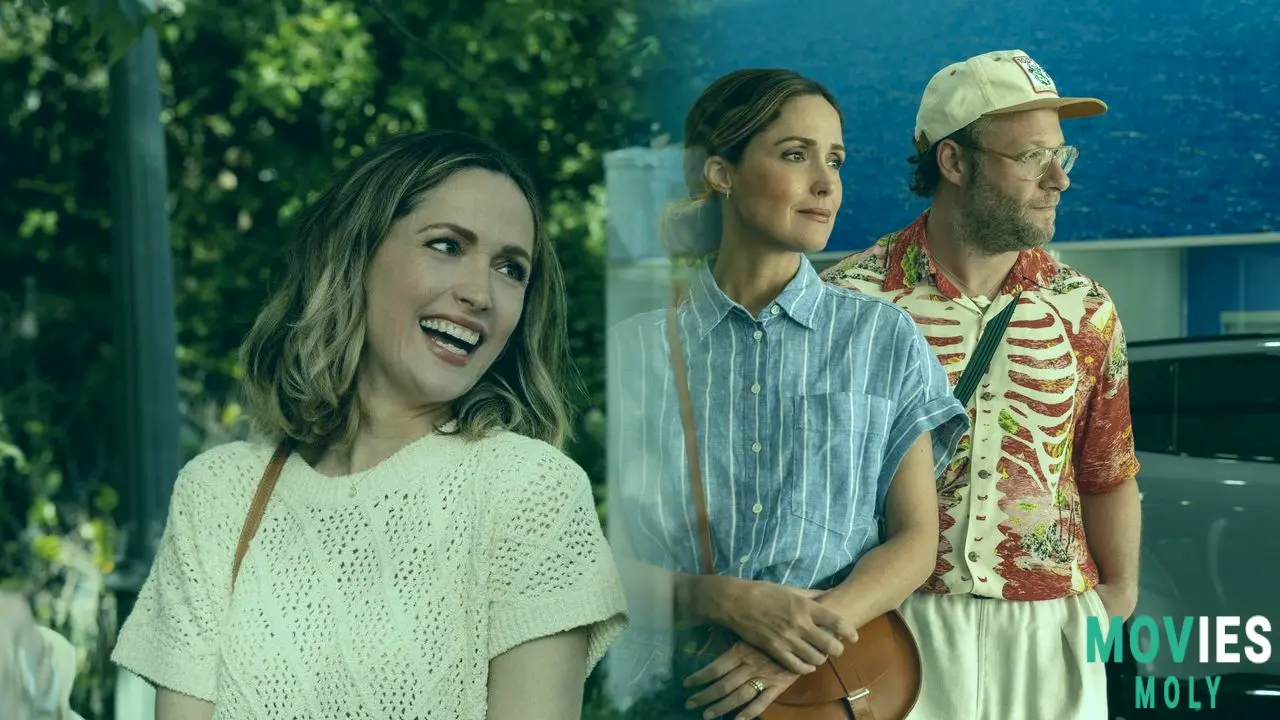The return of Apple TV+'s Platonic Season 2 features the unmistakable hilarious pairing of Seth Rogen and Rose Byrne, demonstrating once more why their on-screen friendship is a must-see. This comedy series, co-created by Nicholas Stoller and Francesca Delbanco, continues to examine the complex, always amusing landscape of midlife companionship. Following their successful collaborations on the Neighbors flicks, Rogen and Byrne have found the ideal medium for their special chemistry: episodic storytelling.
The show resumes as Sylvia (Byrne) makes a career change into event planning, and Will (Rogen) is engaged to Jenna (Rachel Rosenbloom), the CEO of the Johnny 66 restaurant chain. This season rapidly demonstrates that, while Will may have a "stable" relationship and profession, his previous urges and need for Sylvia's raw honesty are never far from the forefront. The series is built around the interplay between Will and Sylvia, highlighting their shared history and how they both enable and challenge each other.
Deep Dive: Character Arcs & Supporting Cast in Platonic Season TwoWhile Seth Rogen's Will and Rose Byrne's Sylvia are unquestionably the stars of Platonic, the second season pays special attention to its supporting cast, enabling their arcs to progress beyond just responding to the lead duo. Charlie (Luke Macfarlane), Sylvia's husband, who spent much of the first season serving as a grounded counterbalance to Will and Sylvia's antics, now has the opportunity to explore his own peculiarities. His passion with Jeopardy! is a regular supply of amusement, including a notable cameo by Ken Jennings.
Jenna, Will's fiancée, is also given more background. Rachel Rosenbloom depicts her as an ambitious overachiever, but the show also delves into her fears, particularly over Sylvia's long-term relationship with Will. This creates a realistic tension as Sylvia attempts to befriend Jenna in order to keep her connection with Will, resulting in awkward but humorous social situations. The series wisely avoids turning this into a romantic triangle, instead emphasizing the difficulties of blending old friendships with new connections. Other characters, such as Will's former coworkers Reggie and Andy, continue to add to the show's unique environment.
Highlights from each episode and Easter eggs

Platonic Season 2 continues the trend of creating unique, memorable comedy set pieces for each episode. In the premiere, "The Engagement Party," Sylvia manages Will and Jenna's engagement party. This swiftly devolves into a low-risk theft involving accidently drugged champagne and a mad dash for replacements. Will's revelation of having a crush on a barista with a Deadpool tattoo is a noteworthy moment, demonstrating his continued immaturity despite his new life. The show also provides insight into Jenna's caustic humor and unbelievable childhood anecdotes.
The Daily Beast lauded the duo, writing, "Seth Rogen and Rose Byrne are modern comedy's best male-female duo, and they cement that status with the second season of Apple TV+'s Platonic."
Later episodes follow same trend. One especially nasty yet amusing golf-related incident involving Jenna's father jumps out. The ongoing gag of Will's technological targets, which range from e-scooters to delivery robots, delivers consistent chuckles. The comedy also finds hilarity in everyday situations, such as Sylvia's attempts to scare away a coyote from her lawn, highlighted by Byrne's wonderfully delivered "Get the f outta here" before reverting to polite goodbyes. These specific moments make each installment feel unique and exciting.
As Rolling Stone pointed out: "When the hook of your project is letting viewers spend time in the company of two funny characters, played by two actors with superb comic chemistry, more is actually more."
Comparison with Other Midlife Friendship Comedies

Platonic distinguishes itself from many modern streaming comedies, which frequently feel like stretched-out film scripts. Nicholas Stoller and Francesca Delbanco, building on their expertise with Judd Apatow's episodic work such as Undeclared, make sure that each episode feels like a standalone story while also adding to a season-long narrative. This prevents the "bagginess" that sometimes afflict other streaming broadcasts.
The Daily Beast also praised on the show's overall tone, writing, "Platonic is a snappy portrait of middle age and its myriad highs, lows, and complicated headaches, and Stoller and Delbanco plumb real, relatable emotions without ever sacrificing laughs."
Unlike series that may include romantic tension between the characters, Platonic sticks to its premise, focusing solely on the challenges of a platonic midlife friendship. This allows it to tackle topics such as codependency, personal growth, and the difficulty of reconciling old friendships with new obligations without following the conventional rhythms of a romantic comedy. It ranks alongside previous adult friendship comedies, but with a distinct emphasis on the non-sexual intimacy and shared history that characterize such bonds.
Thematic Elements and Deeper Meaning
Beyond the laughter, Platonic Season 2 explores deeper themes pertinent to midlife. Sylvia's employment change shows the cultural expectations placed on moms returning to work, as well as the effort to reclaim a sense of self outside of home responsibilities. Her dissatisfaction and desire for something more are palpable, and Rose Byrne conveys them with a realistic blend of wit and vulnerability. Will's journey, while frequently played for laughs, explores the fear of "selling out" and the difficulty of rediscovering happiness and security following a big life transition such as divorce.
The show also investigates the concept of "code-switching" when different social circles collide, notably when longtime friends meet new love partners. IndieWire noted this, writing, "Platonic excels in moments of quiet profundity." The second episode of Season 2 explores the bizarre code-switching that can occur when old friends meet a new love interest. This familiar dynamic provides an element of reality to the comic circumstances.
The Guardian made this observation: "Platonic is lightweight, comforting entertainment primarily focused on the gag, but it has real depth, too."
The story repeatedly questions whether Will and Sylvia are beneficial for each other or if their companionship encourages their darkest instincts. Ultimately, it honors the unusual and valuable relationship they share, despite the turbulence and questionable judgments. Will tells Sylvia, "You don't mess up my life. You make my life better. "You're the only person who's honest with me, and it's just easier to yell at you than to get my act together," brilliantly captures the show's central message about the sometimes-uncomfortable honesty of true friendship.
Speculation and Predictions for a Potential Platonic Season III
With Platonic Season 2 still receiving positive reviews and generating audience interest, a third season appears to be a real possibility for Apple TV+. The Season 2 finale leaves various threads unresolved, particularly Will's connection with Jenna and Sylvia's continuous navigation of her new employment. A hypothetical third season might delve deeper into Will's long-term commitment difficulties and whether he can actually settle down, or if his friendship with Sylvia will always be his primary emotional release.
For Season 3, fans may expect to witness more of Charlie's autonomous adventures, as well as a narrative in which he and Will bond over something other than Sylvia's influence. The show might also feature new individuals who strain Will and Sylvia's relationship in unexpected ways, or it could bring back old college friends like Wild Card (Beck Bennett) for longer appearances. Investigating the future of Sylvia's event planning business and how it affects her family life could also generate valuable comedy and dramatic fodder. Regardless of specific plotlines, the underlying pleasure of witnessing Seth Rogen and Rose Byrne's unparalleled connection will surely drive any future series.





